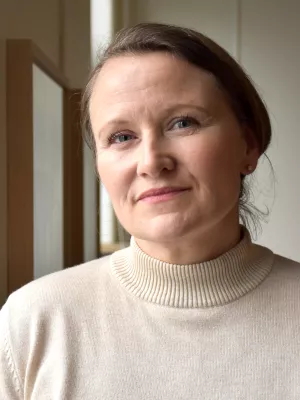
Anna Angelin
Associate professor | Senior lecturer

Multilevel “Arenas” for Fighting Poverty and Social exclusion. National report Sweden.
Author
Summary, in English
The report demonstrates extensive bottlenecks with regard to the successful implementation of the EU2020 strategy. The report demonstrates a gap between the EU2020 strategy and domestic policy-making in the field of active inclusion policies and above all policies regarding social assistance. Although we found elements of a domestic poverty debate in response to the activities to develop and establish common poverty indicators and definitions at EU-level, our interpretation is that these operations have had limited effect on domestic policy-making. The report exemplifies some of the bottlenecks for such a successful implementation, one of them certainly being that poverty per se is not considered part of the Swedish social model, and hence generally attributed as a problematic policy area in itself. We also find few domestic actors that seek to and/or have the capacity to mobilize around the poverty issue at national level (including political parties as well as other stakeholders including CSOs) and also limited interest on part of central Ministries to take direct action in this area.
This leads us to the question of the relevance of the EU2020 anti-poverty strategy in relation to domestic policy-making. In general, we conclude that the EU2020 strategy has had limited ‘effect’ on national policies and above all if we seek to identify substantial policy changes. However, to some extent the EU2020 strategy did cause some reaction among domestic stakeholders, and also debates among government Ministries, yet then much more in terms of defining a national agenda as different from the EU2020 strategy.
Last but not least, the EU2020 strategy has undoubtedly established poverty as a multi-level political issue that is debated and discussed at European, national and local levels, yet in our study it appears that the links are mainly established by the means of the reporting systems to the EU as part of the European semester. We also find extensive gaps between ministries in terms of which part of the central government that decide over the topic and also limited – even less to than in the OMC on social inclusion – involvement from CSOs in the deliberation and completion of the Reports being sent to the Commission.
Department/s
- School of Social Work
Publishing year
2014
Language
English
Document type
Report
Publisher
University of Oldenburg, Jean Monnet Centre for Europeanisation and Transnational Regulations, Institute for Social Sciences
Topic
- Social Work
Keywords
- poverty
- fight poverty
- EU
- 2020 strategy
- financial crisis
- social exclusion
- social inclusion
- multilevel
- multi-stakeholder
- implementation
Status
Published

